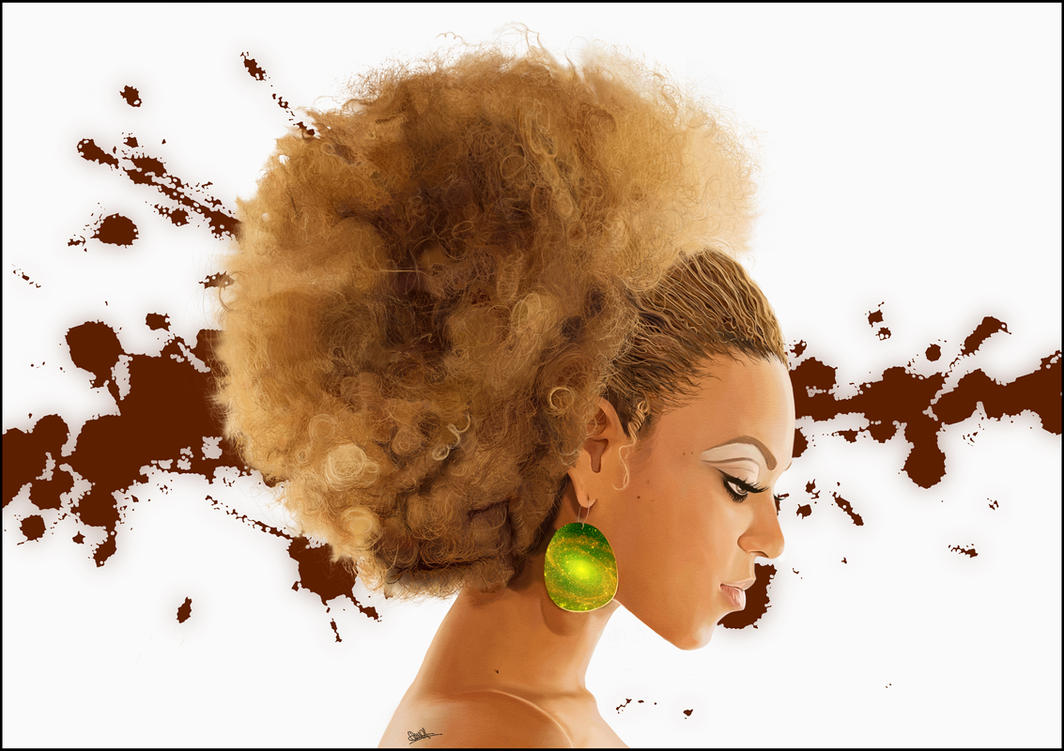According to McLean’s rendering of the alchemical sevenfold process, the manifested work at 4 progresses toward an experimental expression of its energies at 5, from the static square to the dynamic pentacle. Beyoncé, the artist’s eponymous fifth solo album, certainly meets the criteria of a work of experimental expression. Released without warning, following a secretive recording frenzy, the album exploded into public consciousness with such force that it was nearly impossible to separate the sheer enthusiasm of the public from critical experience of the work itself. I listened to it incessantly, with a sense of excitement. I felt vindicated, as though I had believed all along she was capable of this quantum leap in artistic expression. Having read her so intently, the force of her first two songs felt profound in the extent to which they shook her public persona free of its earlier constriction.
Here is Beyoncé, renowned perfectionist and self-disciplinarian, who has spent almost her entire life performing in front of an audience—evidenced by collected footage interspersed through the work—opening her fifth album by singing the Sia-penned declaration, “Perfection is the disease of a nation.” Here is the artist in that opening video, performing the role of pageant queen, performing the cracks and dis-ease underlying our culture’s obsession with flawless surfaces, performing the woundedness and vulnerability she had never before allowed in her public persona.
As soon as the audience begins to consider the implications, the album immediately shifts from powerful ballad into the dark and lush electronic soundscape of “Ghosts/Haunted,” a sound unlike anything the artist has ever done. Here the singer declares, almost casually: “Reap what you sow / Perfection is so… eh.”
Is this the birth of an entirely new stage of consciousness for the singer? A declaration of freedom from the personality and cultural complexes that have formed and impeded the individuation process to this point? Are the lyrics critical of record labels and the need to “work 9 to 5 / just to stay alive” an evolution in the consciousness of the artist toward greater social concerns? As the individuation process reconciles the painful contradictions and limitations of the self, more energy becomes available for outward concern. Simultaneously, the individuated person increasingly comes to see how her history, her family, her community, and her nation comprise facets of self that must themselves be confronted, integrated, or transformed. In the video for “No Angel,” the artist herself is invisible, instead directing the camera and audience toward a community in Houston typically held in media margins, as discussed by sheridf at Crunk Feminist Collective. She is decentralized from the image, but her passion shapes the images we see and experience.
Social concern sets the stage for the later video, “Superpower.” We follow the artist through a slow-motion journey in an apparent call-out to the Occupy movement, gathering young people and activists into a climatic charge at the riot-clad police officers, stopped at the last moment for a triumphant stand-and-stare from the artist herself. Were this scenario to play out in a contemporary city, it would end in tear gas, violence, and arrests. Here she aligns herself with the activist youth, counter the policing forces, envisioning opposition without violence.

Complete Jungian readings of Beyoncé’s work:

